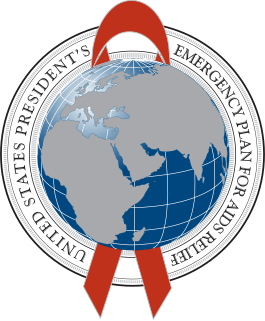
The First Amendment to the United States Constitution prevents the government from making laws that regulate an establishment of religion, or that prohibit the free exercise of religion, or abridge the freedom of speech, the freedom of the press, the freedom of assembly, or the right to petition the government for redress of grievances. It was adopted on December 15, 1791, as one of the ten amendments that constitute the Bill of Rights.
Lemon v. Kurtzman, 403 U.S. 602 (1971), was a case argued before the Supreme Court of the United States. The court ruled in an 8–0 decision that Pennsylvania's Nonpublic Elementary and Secondary Education Act from 1968 was unconstitutional and in an 8–1 decision that Rhode Island's 1969 Salary Supplement Act was unconstitutional, violating the Establishment Clause of the First Amendment. The act allowed the Superintendent of Public Schools to reimburse private schools for the salaries of teachers who taught in these private elementary schools from public textbooks and with public instructional materials. Lemon was a major precedent in federal and local courts until it was effectively overturned by Kennedy v. Bremerton School District in 2022.
Pollock v. Farmers' Loan & Trust Company, 157 U.S. 429 (1895), affirmed on rehearing, 158 U.S. 601 (1895), was a landmark case of the Supreme Court of the United States. In a 5-to-4 decision, the Supreme Court struck down the income tax imposed by the Wilson–Gorman Tariff Act for being an unapportioned direct tax. The decision was superseded in 1913 by the Sixteenth Amendment to the United States Constitution, which allows Congress to levy income taxes without apportioning them among the states.

Samuel Anthony Alito Jr. is an American lawyer and jurist who serves as an associate justice of the Supreme Court of the United States. He was nominated by President George W. Bush on October 31, 2005, and has served since January 31, 2006. He is the second Italian-American justice to serve on the U.S. Supreme Court, after Antonin Scalia, and the eleventh Roman Catholic.

The United States President's Emergency Plan For AIDS Relief (PEPFAR) is a United States governmental initiative to address the global HIV/AIDS epidemic and help save the lives of those suffering from the disease. Launched by U.S. President George W. Bush in 2003, as of May 2020, PEPFAR has provided about $90 billion in cumulative funding for HIV/AIDS treatment, prevention, and research since its inception, making it the largest global health program focused on a single disease in history until the COVID-19 pandemic. PEPFAR is implemented by a combination of U.S. government agencies in over 50 countries and overseen by the Global AIDS Coordinator at the U.S. Department of State. As of 2021, PEPFAR has saved over 20 million lives, primarily in Sub-Saharan Africa.
The Free Exercise Clause accompanies the Establishment Clause of the First Amendment to the United States Constitution. The Establishment Clause and the Free Exercise Clause together read:
Congress shall make no law respecting an establishment of religion, or prohibiting the free exercise thereof...

Pathfinder International, based in Watertown, Massachusetts, US, is a global non-profit organization 501(c)(3) that focuses on reproductive health, family planning, HIV/AIDS prevention and care, and maternal health. The organization operates in more than 15 low- and middle-income countries in Africa and South Asia. According to its website, "Pathfinder is driven by the conviction that all people, regardless of where they live, have the right to decide whether and when to have children, to exist free from fear and stigma, and to lead the lives they choose."

The Fifth Amendment to the United States Constitution addresses criminal procedure and other aspects of the Constitution. It was ratified, along with nine other articles, in 1791 as part of the Bill of Rights. The Fifth Amendment applies to every level of the government, including the federal, state, and local levels, in regard to a US citizen or resident of the US. The Supreme Court furthered the protections of this amendment through the Due Process Clause of the Fourteenth Amendment.
The Federal government of the United States requires certain non-governmental organizations (NGOs) that receive federal anti-HIV/AIDS or anti-trafficking funds to adopt an organization-wide policy opposing prostitution and sex-trafficking. This requirement, known as the anti-prostitution pledge, has been in place since 2003.
Alliance for Open Society International, Inc. (AOSI) is a U.S. public charity organized in 2003 under the laws of the State of Delaware.
Schmerber v. California, 384 U.S. 757 (1966), was a landmark United States Supreme Court case in which the Court clarified the application of the Fourth Amendment's protection against warrantless searches and the Fifth Amendment right against self-incrimination for searches that intrude into the human body. Until Schmerber, the Supreme Court had not yet clarified whether state police officers must procure a search warrant before taking blood samples from criminal suspects. Likewise, the Court had not yet clarified whether blood evidence taken against the wishes of a criminal suspect may be used against that suspect in the course of a criminal prosecution.
Citizens United v. Federal Election Commission, 558 U.S. 310 (2010), was a landmark decision of the Supreme Court of the United States regarding campaign finance laws and free speech under the First Amendment to the U.S. Constitution. It was argued in 2009 and decided in 2010. The court held 5-4 that the free speech clause of the First Amendment prohibits the government from restricting independent expenditures for political campaigns by corporations, including nonprofit corporations, labor unions, and other associations.
Clapper v. Amnesty International USA, 568 U.S. 398 (2013), was a United States Supreme Court case in which the Court held that Amnesty International USA and others lacked standing to challenge 50 U.S.C. § 1881a of the Foreign Intelligence Surveillance Act as amended by the Foreign Intelligence Surveillance Act of 1978 Amendments Act of 2008.
Agency for International Development v. Alliance for Open Society International, Inc., 570 U.S. 205 (2013), also known as Alliance for Open Society I, was a United States Supreme Court decision in which the court ruled that conditions imposed on recipients of certain federal grants amounted to a restriction of freedom of speech and violated the First Amendment.
National Institute of Family and Life Advocates v. Becerra, 585 U.S. ___ (2018), was a case before the Supreme Court of the United States addressing the constitutionality of California's FACT Act, which mandated that crisis pregnancy centers provide certain disclosures about state services. The law required that licensed centers post visible notices that other options for pregnancy, including abortion, are available from state-sponsored clinics. It also mandated that unlicensed centers post notice of their unlicensed status. The centers, typically run by Christian non-profit groups, challenged the act on the basis that it violated their free speech. After prior reviews in lower courts, the case was brought to the Supreme Court, asking "Whether the disclosures required by the California Reproductive FACT Act violate the protections set forth in the free speech clause of the First Amendment, applicable to the states through the Fourteenth Amendment."
Janus v. American Federation of State, County, and Municipal Employees, Council 31, No. 16-1466, 585 U.S. ___ (2018), abbreviated Janus v. AFSCME, was a landmark decision of the US Supreme Court on US labor law, concerning the power of labor unions to collect fees from non-union members. Under the Taft–Hartley Act of 1947, which applies to the private sector, union security agreements can be allowed by state law. The Supreme Court ruled that such union fees in the public sector violate the First Amendment right to free speech, overturning the 1977 decision in Abood v. Detroit Board of Education that had previously allowed such fees.
Jam v. International Finance Corp., 586 U.S. ___ (2019), was a United States Supreme Court case from the October 2018 term. The Supreme Court ruled that international organizations, such as the World Bank Group's financing arm, the International Finance Corporation, can be sued in US federal courts for conduct arising from their commercial activities. It specifically held that international organizations shared the same sovereign immunity as foreign governments. This was a reversal from existing jurisprudence, which held that international organizations had near-absolute immunity from lawsuits under the Foreign Sovereign Immunities Act and the International Organizations Immunities Act.
Espinoza v. Montana Department of Revenue, 591 U.S. ___ (2020), was a landmark United States Supreme Court case in which the Court ruled that a state-based scholarship program that provides public funds to allow students to attend private schools cannot discriminate against religious schools under the Free Exercise Clause of the Constitution.
Barr v. American Assn. of Political Consultants, Inc., 591 U.S. ___ (2020), was a United States Supreme Court case involving the use of robocalls made to cell phones, a practice that had been banned by the Telephone Consumer Protection Act of 1991 (TCPA), but which exemptions had been made by a 2015 amendment for government debt collection. The case was brought by the American Association of Political Consultants, an industry trade group, and others that desired to use robocalls to make political ads, challenging the exemption unconstitutionally favored debt collection speech over political speech. The Supreme Court, in a complex plurality decision, ruled on July 6, 2020, that the 2015 amendment to the TCPA did unconstitutionally favor debt collection speech over political speech and violated the First Amendment.
Fulton v. City of Philadelphia, 593 U.S. ___ (2021), was a United States Supreme Court case dealing with litigation over discrimination of local regulations based on the Free Exercise Clause and Establishment Clause of First Amendment to the United States Constitution. The specific case deals with a religious-backed foster care agency that was denied a new contract by the City of Philadelphia, Pennsylvania, due to the agency's refusal to certify married same-sex couples as foster parents on religious grounds.




